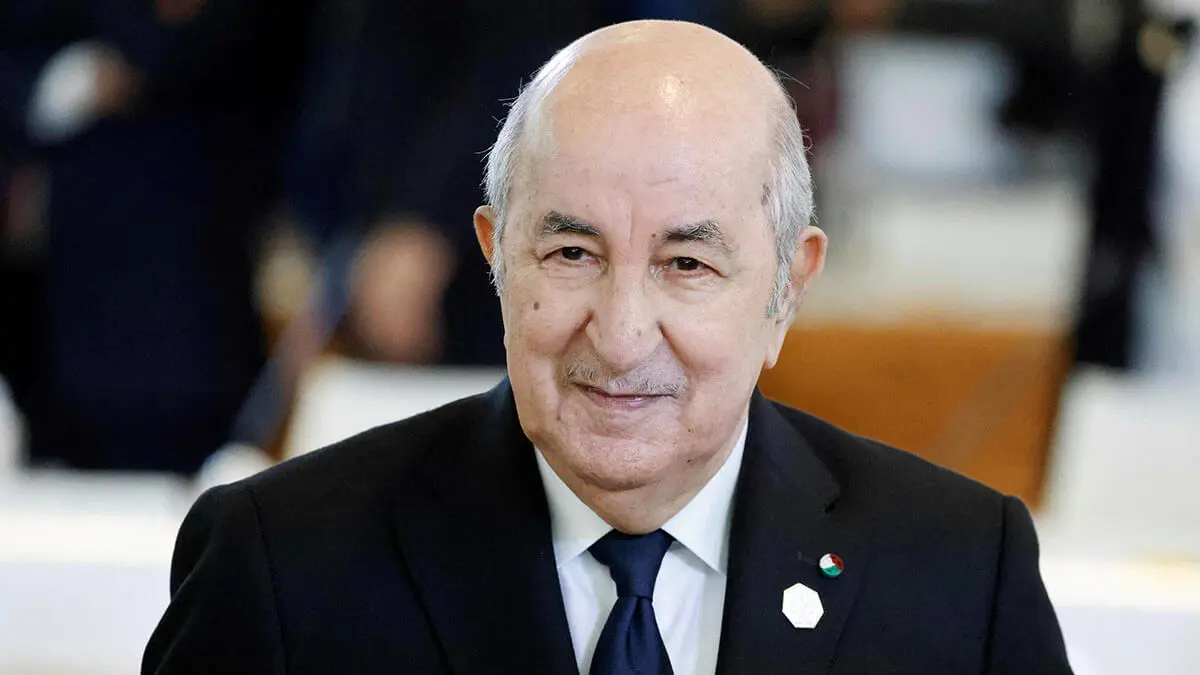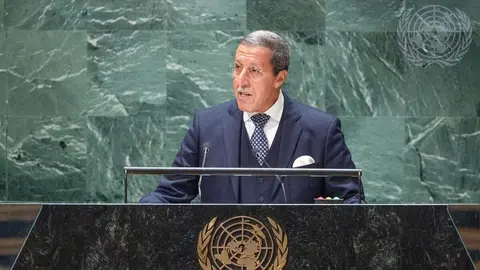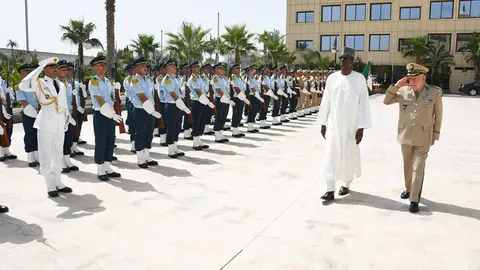On the eve of campaign opening, Algerian authorities raise the spectre of civil war

Just as the election campaign was about to get underway without really exciting the electorate, the Algerian media, led by public and private television channels, broadcast images of a young man confessing to belonging to the Movement for the Self-Determination of Kabylia (MAK), resident in France and arrested in the port of Bejaïa on 4 August, on board a vehicle loaded with weapons and explosives on its way to Marseille.
Ten days later, on 14 August, on the eve of the launch of the electoral campaign of the three candidates for the supreme magistracy, the Ministry of National Defence made public the details of this affair, the aim of which was to "sow unrest and insecurity" and "disrupt the smooth running of the Algerian presidential elections on 7 September", according to the MDN communiqué. That says it all. The presidential elections are under threat, as is the stability of the country. Civil war is on the horizon. The call is for "the people to mobilise around their leaders".
The case is far from convincing Algerian public opinion, such is the importance of the story. A vehicle carrying "46 firearms of various calibres, a large quantity of cartridges, bullets and shells of various calibres, 12 binoculars, 10 bladed weapons, a set of parts and accessories for firearms, equipment and raw materials for the manufacture of ammunition, a GPS geolocation device, computers and mobile phones and various other objects" crossed the Mediterranean from the port of Marseille.

For those in charge and their scriptwriters, it doesn't matter what the Algerian citizen might think. "They must be convinced that the stability and integrity of Algeria is under threat. Consequently, everyone must approve and support the repressive measures taken against the citizens of the rebel region of Kabylia. For example, the arrest and imprisonment of 21 citizens, including a woman, accused of belonging to a network commissioned by foreign secret services, has not been condemned". The communiqué of the Ministry of National Defence does not mention the names of these foreign secret services.
Although the election campaign has got off to a very timid start, and there is no indication that it will become any livelier in the coming days, political leaders are not too worried about the competition between the three elected candidates.
The results are known in advance, and there can be no doubt about the final outcome of the electoral joust, whose winner is none other than Abdelmadjid Tebboune, who will succeed himself. Those in charge are betting on something else. They are betting on participation, especially in Kabylia. In the upper echelons of Algerian power, the historic boycott of Kabylia in 2019 will not soon be forgotten. The region's two main wilayas, Tizi-Ouzou and Bejaïa, did not see a single ballot paper drop into a single ballot box in the polling stations that remained closed due to popular pressure.

To achieve the goal of a high turnout, there is no better way than to brandish the civil war card to mobilise the population, which is called upon to respond to the "enemies of the nation" with a high turnout in the presidential elections to demonstrate the sacred alliance between the rulers and the population.
As for the challenge of breaking the Kabyle boycott, two weapons are used. The first is to elect a candidate from the oldest opposition party, which was formed after independence in 1963 under the leadership of Hocine Aït Ahmed, one of the key figures in the outbreak of the liberation war. Although this party has lost much of its lustre and is now but a shadow of its former self, it will still serve to break the boycott, if only through the participation of a small proportion of the Kabyle population. The second weapon is repression. This weapon began to be used with the arrest of 21 people on terrorism charges.
It should be remembered that calling for a boycott is punishable by law. Journalist Merzoug Touati learned this the hard way when, a few days ago, he was placed under judicial surveillance after narrowly escaping prison. He is accused of attacking the person of the President of the Republic and inciting a boycott of the elections. Youcef Aouchiche (40), the FFS candidate, has no ambition other than to be at the head of one of the three political poles that will henceforth dominate the Algerian political scene, as conceived by the mastermind of the presidency, Colonel Mohamed Chafik Mesbah, an adviser to El-Mouradia.
The third candidate, Abdelaali Hassani Cherif (57), president of the Mouvement de la Société pour la Paix (Society for Peace Movement), who is running under the Islamist banner, has no pretensions of antagonising the candidate of the political leaders. He keeps reminding his entourage that for him "it is an honour to be in an electoral contest with President Tebboune".











